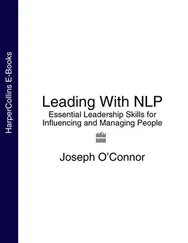John Gray - Children Are from Heaven - Positive Parenting Skills for Raising Cooperative, Confident, and Compassionate Children
Здесь есть возможность читать онлайн «John Gray - Children Are from Heaven - Positive Parenting Skills for Raising Cooperative, Confident, and Compassionate Children» весь текст электронной книги совершенно бесплатно (целиком полную версию без сокращений). В некоторых случаях можно слушать аудио, скачать через торрент в формате fb2 и присутствует краткое содержание. Год выпуска: 1999, ISBN: 1999, Издательство: HarperCollins e-books, Жанр: psy_childs, sci_pedagogy, Психология, на английском языке. Описание произведения, (предисловие) а так же отзывы посетителей доступны на портале библиотеки ЛибКат.
- Название:Children Are from Heaven: Positive Parenting Skills for Raising Cooperative, Confident, and Compassionate Children
- Автор:
- Издательство:HarperCollins e-books
- Жанр:
- Год:1999
- ISBN:978-0-06-133886-1
- Рейтинг книги:4 / 5. Голосов: 1
-
Избранное:Добавить в избранное
- Отзывы:
-
Ваша оценка:
- 80
- 1
- 2
- 3
- 4
- 5
Children Are from Heaven: Positive Parenting Skills for Raising Cooperative, Confident, and Compassionate Children: краткое содержание, описание и аннотация
Предлагаем к чтению аннотацию, описание, краткое содержание или предисловие (зависит от того, что написал сам автор книги «Children Are from Heaven: Positive Parenting Skills for Raising Cooperative, Confident, and Compassionate Children»). Если вы не нашли необходимую информацию о книге — напишите в комментариях, мы постараемся отыскать её.
Children Are from Heaven: Positive Parenting Skills for Raising Cooperative, Confident, and Compassionate Children — читать онлайн бесплатно полную книгу (весь текст) целиком
Ниже представлен текст книги, разбитый по страницам. Система сохранения места последней прочитанной страницы, позволяет с удобством читать онлайн бесплатно книгу «Children Are from Heaven: Positive Parenting Skills for Raising Cooperative, Confident, and Compassionate Children», без необходимости каждый раз заново искать на чём Вы остановились. Поставьте закладку, и сможете в любой момент перейти на страницу, на которой закончили чтение.
Интервал:
Закладка:
THE ALTERNATIVE TO PUNISHMENT IS REWARD
Instead of motivating children with punishment, children today need to be motivated with rewards. Instead of focusing on the consequences of negative behavior, positive parenting focuses on the consequences of positive behavior.
Instead of using a negative outcome to motivate children, it uses a positive outcome.
There is no greater motivator, other than children’s inner desire to cooperate, than their desire for reward. Many times it is the outer reward or acknowledgment of success that awakens children’s inner desire to cooperate. Every child wants special time with his parents. Every child gets excited when you mention dessert. Every child loves presents. Every child looks forward to a party or celebration.
Every parent has noticed how warm, friendly, and cooperative children are when they want something and think they can get it.
Getting “more” or the anticipation of getting more awakens something inside, and a child jumps up with a big yes. The expectation of reward gives children the energy and focus to respond to their parents’ need for cooperation and help. The promise of more inspires everyone, old or young, to cooperate. Rewarding, rather than punishing, your children will increase their willingness to cooperate.
The promise of more inspires everyone,
old or young, to cooperate.
While parents are sometimes slow to adopt new ideas, successful businesses are not. To survive and flourish, businesses must adapt to change very quickly or they will get left behind. The airlines, for example, clearly know that giving perks, incentives, miles, and extra miles is the way to motivate people to fly their friendly skies. Most successful companies now routinely offer special rewards for employees who excel.
Using incentives in the business world is common sense, but when it comes to parenting, there is a strong undercurrent of belief that rewarding children is like bribing them, and, if you need to bribe them, you really aren’t the boss.
For some, motivating your children with a reward somehow implies that you as a parent are weak and your children are running the show. Yet, those who promote this belief will turn around and punish their children to make them behave . . . and a punishment is just a negative bribe.
This message is hard to hear for those who have gone against their heart’s instincts by using their heads to justify punishing. Many parents even say as they spank their children, “This hurts me more than it does you.” Their hearts were speaking, but their minds were not yet ready to listen.
They love their kids, but just did the best they knew.
Already thousands of children have been successfully raised without punishment or using threats to keep control.
Their parents didn’t punish, and it worked fine. These children were not unruly or undisciplined in their behavior and turned out great. Yet, on the other hand, millions of parents have clearly failed by using soft love, hard love, or by going go back and forth.
THE TWO REASONS A CHILD MISBEHAVES
To understand why the conscious use of reward works best, we need first to explore the two reasons children misbehave.
The first and most important reason children today misbehave is that they are getting what they need to stay in touch with inner feelings. Remember, nonfeeling children need punishment to reconnect with their feelings. Children today just need understanding, structure, direction, and rhythm, and they will automatically be more in touch with their feelings.
Children go out of control when they are not
getting what they need.
When children don’t get what they need, they go out of your control and misbehave. They misbehave not because they are bad, but because they are out of your control. When children are getting what they need, they remain under your control and cooperate. You may have a great car that works perfectly, but if you let go of the steering wheel it will quickly crash. Unless parents keep control, their children will crash.
The second reason a child misbehaves is determined by how the parent then deals with the child’s unruly behavior.
By continuing to focus on the negative behavior, children will continue to behave in a negative manner. When you focus on negative behavior, that is what you will get more of. Punishing children forces them to focus on a negative behavior rather than focusing on the positive.
WHY GIVING REWARDS WORKS
Rewarding your children for positive behavior means focusing on the good that they do. Punishing your children focuses your attention on the bad that they did and reinforces the old idea that they are born bad and need to be rehabilitated. By focusing on the bad, the good does not have the opportunity to come up and be expressed.
What you put your attention on grows. When you punish a child, a lot of attention gets put on a child’s negative behavior. A parent might even say, “I’ll teach you a lesson that you will never forget.” The opposite of punishment is a forgiving attitude that clearly states it is okay to make mistakes and then forget about it and move on. What is more important with children today is nurturing their needs and directing them in ways to make them successful.
If you reward a child’s positive behavior, that is what will increase. Rather than look for and focus on a child’s mistakes, parents need to try “catching” the child doing things right. Whenever your children are moving in the right direction, acknowledge their success, and they will continue to move in that direction.
Rather than look for and focus on
children’s mistakes, try “catching” them
doing things right.
For a young child, aged four to nine, make a chart of a few chores and positive behaviors. Before bedtime, review the list and stick on stars or bright and colorful stickers next to any chores completed for that day. If they didn’t do the chore or positive behavior, just leave a blank and don’t put much attention on it. Have a neutral to bored attitude regarding the blanks and focus enthusiasm and positive feelings regarding successes. Each star can mean a point, and when the points add up to twenty-five, then you should do something special such as have twice as much reading time or go to a baseball game. This activity then becomes another special memory linking the child back to feeling acknowledged and successful.
Have a neutral to bored attitude regarding
mistakes and focus enthusiasm and positive
feelings regarding their successes.
Keeping a chart helps parents remember to acknowledge whenever children happen to do the right thing. Most parents are not even aware of how much they verbalize what their child is doing wrong. With this insight, it becomes more clear why children don’t listen. If we drown our children in negative statements, we cannot expect our children to cooperate. This is a list of thirty-three common expressions to assist you in becoming aware of things you may be saying.
NEGATIVE ACKNOWLEDGMENTS
You didn’t put your books away.
Something is wrong with you.
You are being too loud.
Don’t be mean to your sister.
Your room is a mess.
How many times have you forgotten your jacket?
When are you going to grow up?
You are not listening to me.
Don’t go over there.
Don’t play with your food.
I wish you had been a boy.
Stop daydreaming and look at what you are doing.
Stop running around.
You are playing too rough.
You are being bossy again.
No one will like you if you behave that way.
Читать дальшеИнтервал:
Закладка:
Похожие книги на «Children Are from Heaven: Positive Parenting Skills for Raising Cooperative, Confident, and Compassionate Children»
Представляем Вашему вниманию похожие книги на «Children Are from Heaven: Positive Parenting Skills for Raising Cooperative, Confident, and Compassionate Children» списком для выбора. Мы отобрали схожую по названию и смыслу литературу в надежде предоставить читателям больше вариантов отыскать новые, интересные, ещё непрочитанные произведения.
Обсуждение, отзывы о книге «Children Are from Heaven: Positive Parenting Skills for Raising Cooperative, Confident, and Compassionate Children» и просто собственные мнения читателей. Оставьте ваши комментарии, напишите, что Вы думаете о произведении, его смысле или главных героях. Укажите что конкретно понравилось, а что нет, и почему Вы так считаете.












